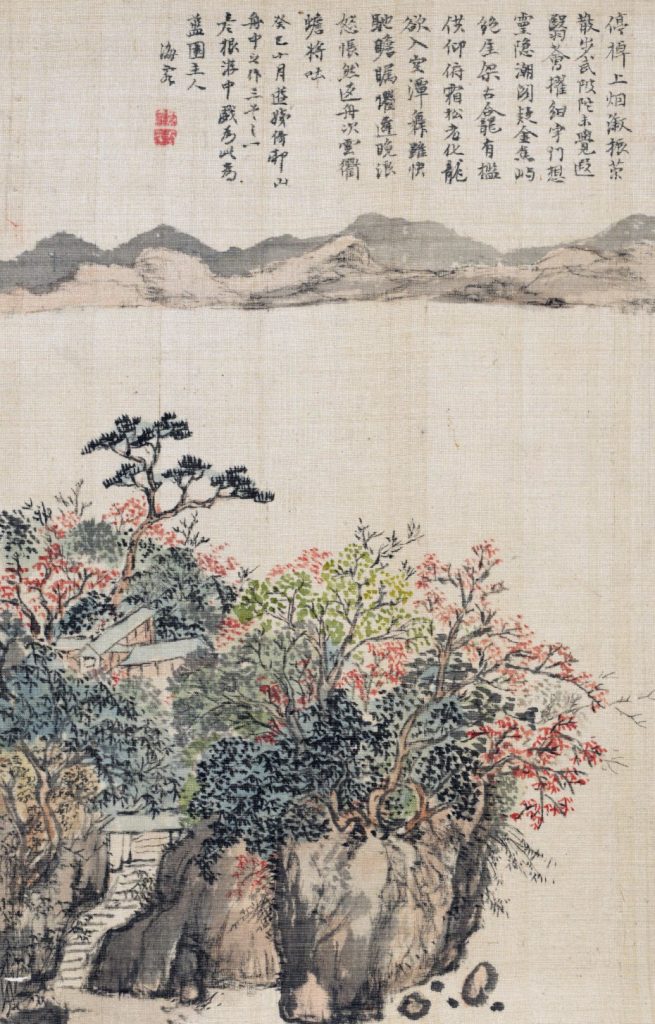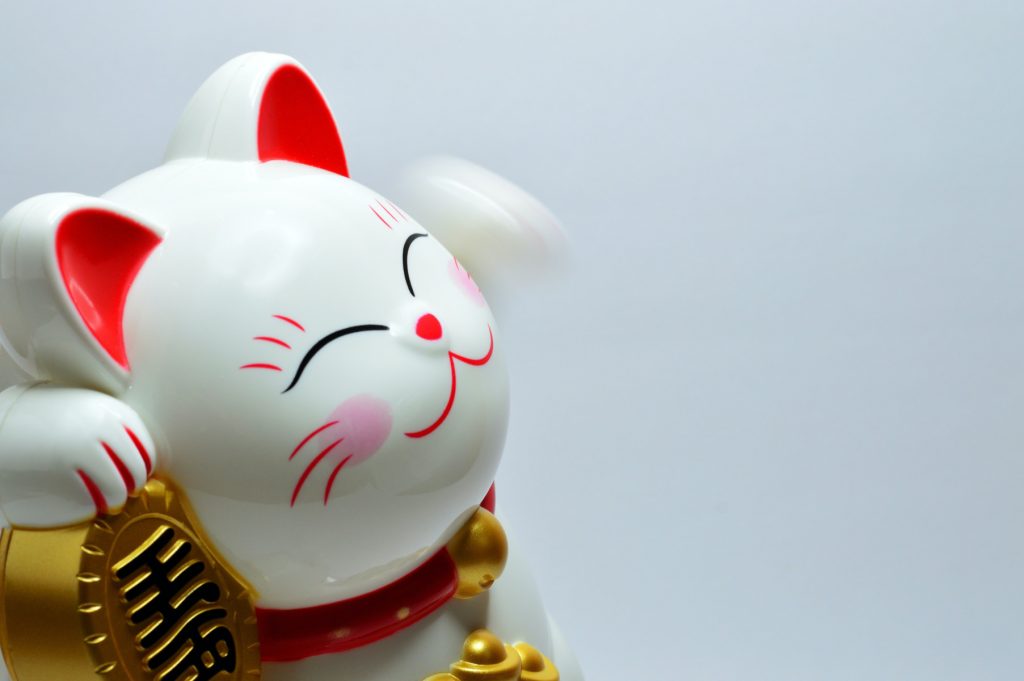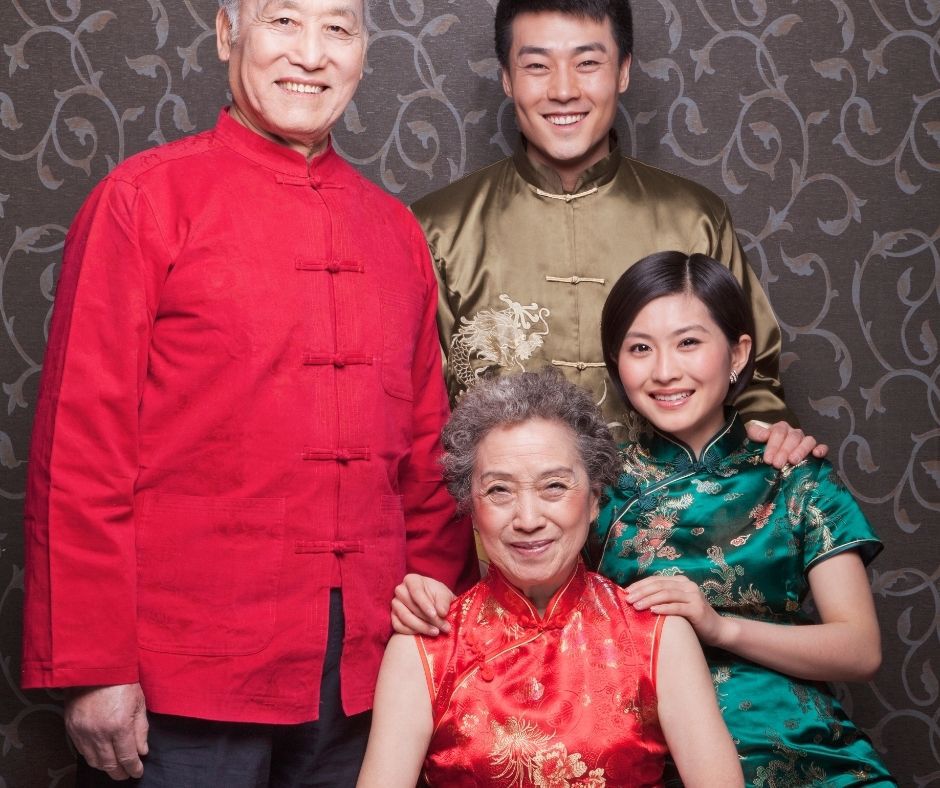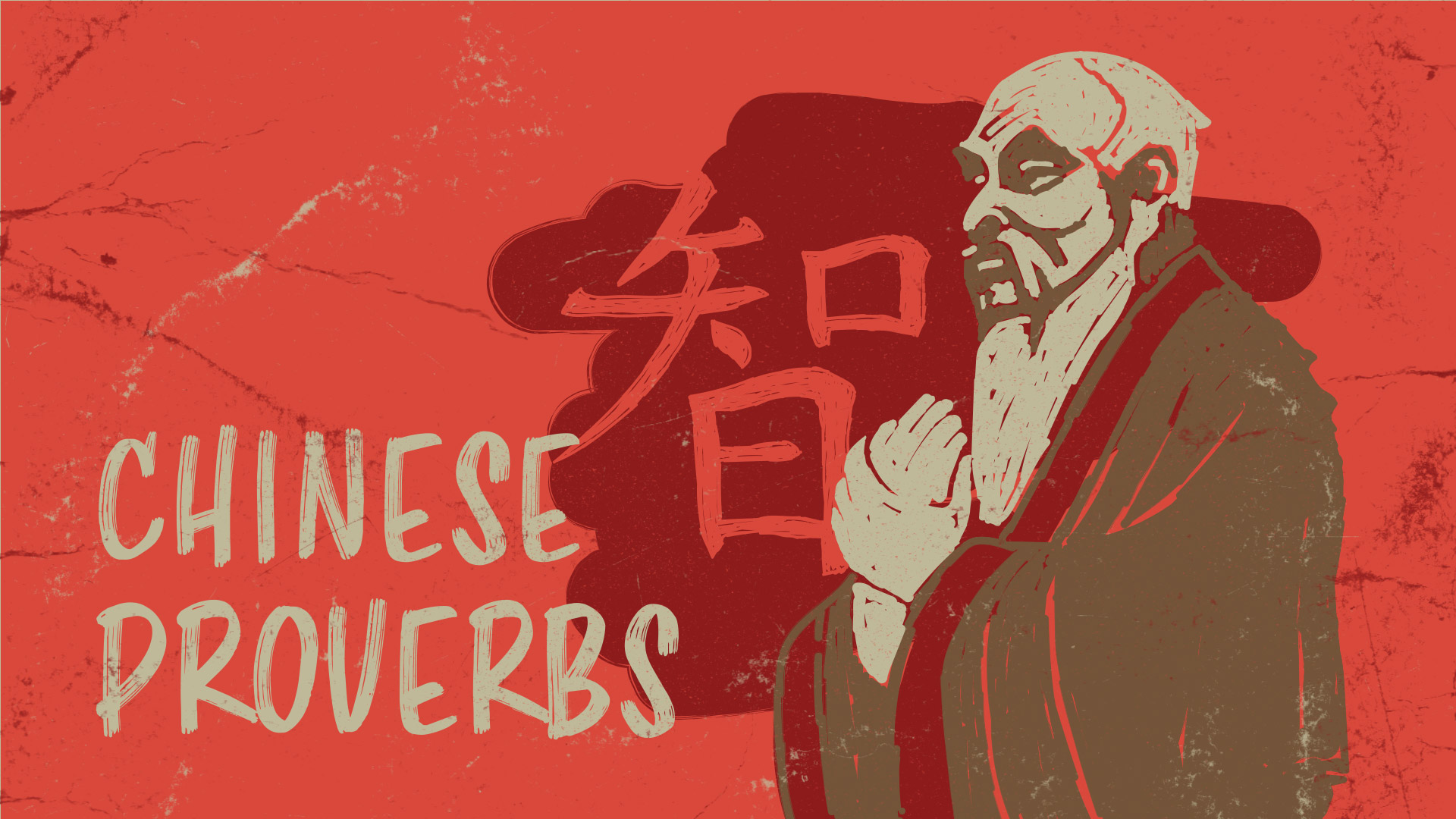55 Chinese Proverbs, Sayings and Quotes

“Chinese proverbs” – 谚语 (yànyǔ) are known to be the ultimate pearls of wisdom.
As in any other language, Chinese proverbs are usually very short sayings about the advice and truths of life. Many proverbs have their origins in ancient China, and its philosophers, writers and poets.
Even though most of these Chinese sayings have their roots in ancient times, they carry the same power as before — and you will see they are exactly what you didn’t know you needed.
Read and learn these 55 Chinese words of wisdom and you might find out you already know many of them (but never knew they came from China):

Chinese Proverbs About Love
1. 有缘千里来相会。 (yǒuyuán qiānlǐ lái xiāng huì) – “Fate has us meet from a thousand miles away.”
This old Chinese proverb is well known for all the romantic souls who like to believe that their love is simply meant to be.
2. 握住你的手,和你一起变老。(wò zhù nǐ de shǒu, hé nǐ yīqǐ biàn lǎo) – “Hold your hand and grow old with you.”
Another beautiful Chinese saying for the romantics among us.
3. 情人眼里出西施。(qíngrén yǎn lǐ chū xīshī) – “In the eyes of a lover, Xi Shi appears.”
Xi Shi was one of the four women who were renowned for their beauty in ancient China. This is one of the most famous Chinese sayings about love. In English, we know it as “love is blind” or “beauty is in the eyes of the beholder”.
4. 有情饮水饱,无情食饭饥。(yǒuqíng yǐnshuǐ bǎo, wúqíng shí fàn jī) – “Having love, drinking water will fill you up, without love, eating food will leave you hungry.”
This can also be translated as: “With love, even water is filling, but without love, not even food will make you full.”
Nothing will help you with a broken heart, but when you’re in love, that is all you need — and that’s what this Chinese saying about love says.
5. 爱屋及乌。(ài wū jí wū) – “Love the house with its crows (on the roof).”
I understand this saying to mean: “When you love someone, you love them with everything.”
This short proverb is translated to quite a long sentence, but its essence is simple. In Chinese, the proverb intends to express that when you’re in love with someone, you love them with both their virtues and faults.
6. 一日三秋。(yī rì sānqiū) – “One day (seems like) three autumns.”
This saying used to express how much a person misses their loved one.
7. 举案齐眉。(jǔ'ànqíméi) – “Lifting the tray up to the eyebrows.”
Lifting a tray high when serving food to a guest is a traditional Chinese way to show respect. The saying is often connected to the respect between a husband and a wife.
8. 生活有爱幸福,为爱生活愚蠢。(shēnghuó yǒu ài xìngfú, wèi ài shēnghuó yúchǔn) – “Living with love is happy, but living for love is foolish.”
Simply, love matters but it is not the most important thing.
9. 有情人终成眷属。(yǒuqíng rén zhōng chéng juànshǔ) – “People in love will get married.”
This Chinese proverb means that love will always find a way.
10. 爱不释手。(àibùshìshǒu) – “Love won’t let go of hand.”
The meaning of this Chinese saying in English is: “to be fond of someone or something” ot “to be locked in love”.
Chinese Proverbs About Wisdom
1. 笑一笑,十年少。 (xiào yīxiào, shí niánshào) – “A smile is the best remedy.”
Or “a smile is the best form of make-up.”
2. 不怕慢, 就怕停。 (bú pà màn, jiù pà tíng.) – “Don’t be afraid of going slow, just be afraid of stopping/standing still.”
3. 授人以鱼不如授人以渔。 (shòu rén yǐ yú bù rú shòu rén yǐ yú) – “Give a man a fish and you feed him for a day. Teach a man how to fish and you feed him for a lifetime.”
One of the most well known ancient Chinese proverbs we also know in English means “teaching/knowledge is the best gift.” We actually apply this proverb to language learning in the Fluent in 3 Months Challenge.
4. 吃一堑,长一智。 (chī yī qiàn, zhǎng yī zhì) – “Eat one pit/moat, grow one wisdom.”
To make more sense out of this Chinese proverb, we can also translate it as “by falling (into the pit), you’ll be wiser/safer next time” and it means: “We learn from our mistakes.”
5. 水满则溢。 (shuǐ mǎn zé yì) – “Water flows in to flow out.”
Once things reach their climax, they will reverse. “Once you’re up, once you’re down.”
6. 留得青山在,不怕没柴烧。 (liú dé qīngshān zài, bùpà méi chái shāo) – “While there are green hills, there will be wood to burn.”
This could also be translated as: “Where there is life, there is hope.”
7. 请教别人一次是五分钟的傻子,从不请教别人是一辈子的傻子。 (qǐngjiào biérén yīcì shì wǔ fēnzhōng de shǎzi, cóng bù qǐngjiào biérén shì yībèizi de shǎzi) – “He who asks a question might be a fool for five minutes; he who doesn’t ask a question remains a fool forever.”
A well known Chinese proverb to encourage people to ask questions and continue educating themselves.
8. 一鸟在手胜过双鸟在林。 (yī niǎo zài shǒu shèngguò shuāng niǎo zài lín) – “One bird in the hand is better than two birds in a forest.”
This is basically the same as the English saying.
9. 千军易得, 一将难求。 (qiān jūn yì dé, yī jiāng nán qiú) – “It’s easy to find a thousand troops, but a general is hard to find.”
The meaning of this Chinese saying is that finding a good leader can be difficult.
10. 英雄所见略同。 (yīngxióng suǒjiàn lüè tóng) – “The heroes think the same.”
Or: “Great minds think alike.”

Chinese Proverbs About Family
1. 家和万事兴。 (jiā hé wànshì xīnɡ) – “If the family lives in harmony, all affairs will prosper.”
Family over everything. If the family is divided, nothing in their lives will be successful. We’ve got an in-depth article on the place of family in Chinese culture here.
2. 儿行千里母担忧。 (ér xíng qiānlǐ mǔ dānyōu) – “When children go far (lit. thousand li/500 km), mothers worry.”
3. 家家有本难念的经。 (jiā jiā yǒu běn nán niàn de jīnɡ) – “Every family has its own issues.”
Equivalent to “everyone has a skeleton in their closet.”
4. 有其父必有其子。 (yǒu qí fù bì yǒu qí zi) – “Where there is a father, there is a son.”
“Like father, like son.”
5. 家丑不可外扬。 (jiāchǒu bùkě wàiyáng) – “Family’s shames can’t be taken outside/be visible.”
Similar to “don’t wash your dirty linen in public.”
6. 落叶归根。 (luòyèguīgēn) – “Fallen leaves return to their roots.”
An explanation of this Chinese aphorism can be whomever leaves their home will always come back. “There’s no place like home.”
7. 金窝,银窝,不如自家的狗窝。 (jīn wō, yín wō, bùrú zìjiā de gǒu wō) – “A poor man treasures his shack more than gold and silver mansions.”
“East or west, home is best.”
8. 儿孙自有儿孙福。 (érsūn zì yǒu érsūn fú) – “Children and grandchildren will have their own children and grandchildren.”
This means: “Younger generations will do alright on their own.”
9. 不当家,不知柴米贵。 (bùdāng jiā, bùzhī cháimǐ guì) – “If you don’t manage a household, you wouldn’t know how expensive it is.”
10. 家有敝帚,享之千金。 (jiā yǒu bì zhǒu, xiǎng zhī qiānjīn) – “Cherish a broom as if it was gold.”
You should appreciate what you have (even if it’s of small value) because it’s your own.
Chinese Proverbs About Learning
1. 万事起头难。 (wànshì qǐtóu nán) – “Everything starts hard.”
Or: “Beginnings are always the hardest.”
2. 熟能生巧。 (shú néng shēngqiǎo) – “Practice makes perfect.”
3. 冰冻三尺,非一日之寒。 (bīngdòng sān chǐ, fēi yī rì zhī hán) – “Freezing into three feet depth can’t be done in one day.”
This proverb is an equivalent to “Rome wasn’t built in a day”. In others words, don’t give up and you’ll see results.
4. 三个臭皮匠,胜过诸葛亮。 (sān gè chòu píjiàng, shèngguò zhūgéliàng) – “Three unskilled (“smelly”) cobblers are better than one Zhuge Liang.”
This Chinese idiom might seem very unfamiliar until you see the English equivalent: “Two heads are better than one.”
Zhuge Liang (Kongming) was a famous strategist in ancient China and recognized as very intelligent and accomplished. In this saying, his name is used to say that even this wise man is less wise than three unskilled men.
5. 今日事,今日毕。 (jīnrì shì, jīnrì bì) – “Today’s tasks are to be completed today.”
“Don’t put off until tomorrow what can be done today.”
6. 师父领进门,修行在个人。 (shīfu lǐng jìnmén, xiūxíng zài gèrén) – “Teachers open the doors, but you enter by yourself.”
A teacher can show you the way, but the rest is up to you.
7. 一口吃不成胖子。 (yīkǒu chī bùchéng pàngzi) – “To want to get fat with only one bite.”
This Chinese saying means “to be impatient for success”. It could be translated as “learn to walk before you run.”
8. 欲速则不达。 (yù sù zé bù dá) – “Haste is not enough.”
Or: “Haste makes waste.”
9. 百闻不如一见。 (bǎi wén bùrú yī jiàn) – “Hearing a hundred times doesn’t compare to seeing once.”
This one means: “Seeing is believing.”
10. 不入虎穴,焉得虎子。 (bù rù hǔxué, yān dé hǔ zi*) – “You cannot catch tiger cubs without entering the tiger’s lair.”
“No pain, no gain.”
General Chinese Aphorisms, Sayings, Proverbs and Quotes
1. 萝卜青菜,各有所爱。(luóbo qīngcài, gè yǒu suǒ ài) – “Each turnip loves something different.”
Or : “Every man to his own taste.” “To each his own.”
2. 捷足先登。(jiézú-xiāndēng) – “A fast foot arrives first.”
The English equivalent is: “The early bird gets the worm.”
3. 覆水难收。(fùshuǐ-nánshōu) – “Spilt water can’t be gathered up.”
“Don’t cry over spilt milk” or “what is done can’t be undone.” This Chinese saying is often used about divorce.
4. 凡人不可貌相, 海水不可斗量。(fánrén bùkě màoxiàng, hǎishuǐ bùkě dǒu liàng) – “Mortals are not to be judged by appearance, and the sea is not to be measured.”
“Don’t judge by looks.” Or the more famous English equivalent: “Don’t judge a book by its cover.”
5. 入乡随俗。 (rùxiāngsuísú) – “Wherever you are, follow local customs.”
The English equivalent to this Chinese proverb is: “When in Rome, do as the Romans do.”
6. 广交友,无深交。(guǎng jiāoyǒu, wú shēnjiāo) – “When you have a lot of friends, you don’t have any real friends.”
The point of this saying is that having a lot of friends doesn’t mean you have an actual friend. It’s like “a friend to everyone is a friend to no one.”
7. 同病相怜。 (tóngbìng-xiānglián) – “Those with the same illness commiserate with each other.”
The meaning is that the sufferers of the same pain sympathize with each other. The English equivalent of this saying is: “Misery loves company.”
8. 善有善报,恶有恶报。 (shàn yǒu shàn bào, è yǒu è bào) – “The good deeds pay good recompense and the evil pays back with evil.”
Or: “What goes around, comes around.”
9. 种瓜得瓜。 (zhòng guā dé guā) – “As you sow a melon, you should reap one.”
Another version of “what goes around, comes around.”
10. 一日之计在于晨。 (yī rì zhī jì zàiyú chén) – “The plan of the day should be done in the morning/dawn.”
Similar to: “The early bird gets the worm.” If you get up early and plan your day, it will affect you positively.

Funny Chinese Proverbs
1. 用一个筷子吃饭的人是饿的。 (yòng yīgè kuàizi chīfàn de rén shì è de) – “Those who eat with one chopstick will stay hungry.”
Eating with one chopstick is impossible. Before you get your food, make sure you have two chopsticks to eat it with. It can be roughly translated as “find a balance in your life.”
2. 一个在床上吃饼干的男人醒来感觉很糟糕。 (yīgè zài chuángshàng chī bǐnggān de nánrén xǐng lái gǎnjué hěn zāogāo) – “A man who eats biscuits in his bed wakes up feeling terrible.”
This saying is meant to remind us not to be greedy, especially with food (before sleep).
3. 一个男人在电栅栏上小便将会得到令人震惊的消息。 (yīgè nánrén zài diàn zhàlán shàng xiǎobiàn jiāng huì dédào lìng rén zhènjīng de xiāoxī) – “A man urinating on an electric fence will get shocking news.”
This funny Chinese saying is a reminder to be careful and not look for problems while already dealing with some.
4. 缘木求鱼。 (yuánmù-qiúyú) – “To climb a tree to catch fish.”
A saying to describe wrong and useless approach; a lost cause.
5. 拍马屁。 (pāimǎpì) – “To beat/slap a horse’s back.”
A funny way to describe someone who tries to be very nice to people, especially someone of authority, to get something from them.
Check out this article on German sayings if you want to learn more proverbs in different languages. To continue with your Chinese language studies, you’ll find articles on our blog about counting numbers in Chinese, Chinese phrases for your first conversation, and many more.



Social